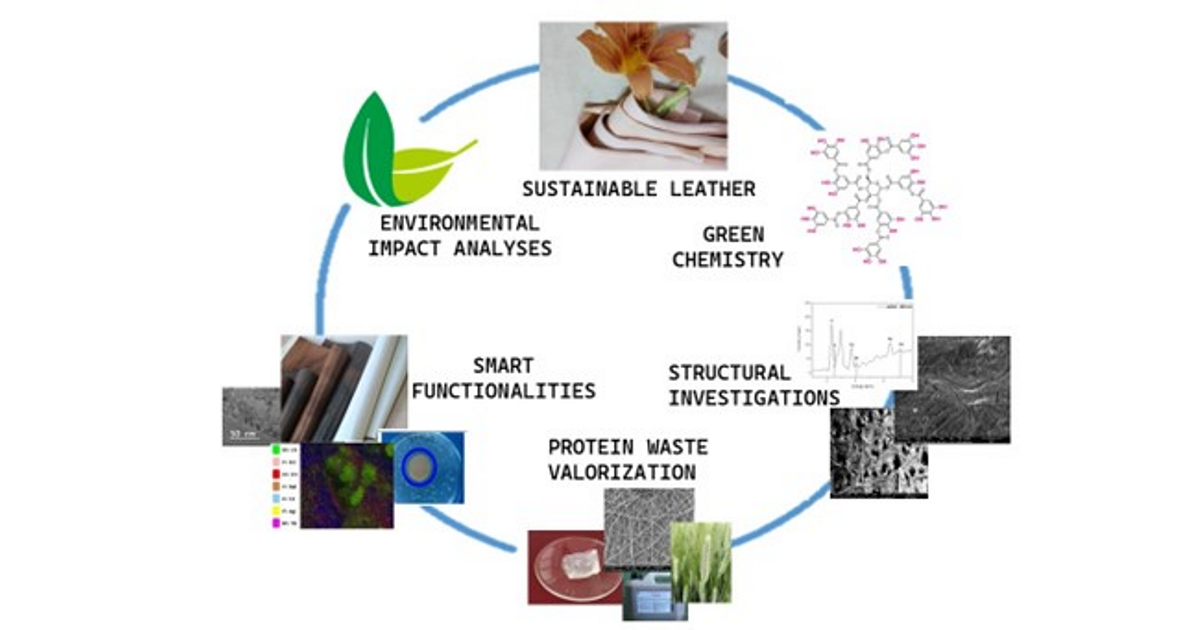Advanced Leather and By-Product Processing for Sustainable Industry
A special issue of Materials (ISSN 1996-1944). This special issue belongs to the section "Biomaterials".
Deadline for manuscript submissions: 20 April 2026 | Viewed by 2693

Special Issue Editors
Interests: leather science and technology; collagen and keratin based by-products; biomaterials; nanomaterials and advanced materials application; natural extracts and products; nonconventional technologies
Special Issues, Collections and Topics in MDPI journals
Interests: sustainability; circular economy; leather science and technology; biomaterials
Special Issues, Collections and Topics in MDPI journals
Special Issue Information
Dear Colleagues,
Leather industry represents the oldest activity related to material creation: manufacturing a by-product of food industry. Irreplaceable by synthetic or natural/synthetic materials, leather has unique breathable and mechanical properties that make it versatile and useful in the production of footwear, garments, bags, furniture or airplane upholstery. There are many aspects of leather science and technology that need to be researched with regard to the interaction of chemical materials with collagen structure: the identification of more ecological alternatives to chemical auxiliaries and processes, the identification of potentially harmful substances, the assessment of leather’s biodegradability at its end of life, smart new functionalities of leathers, advanced materials made from leather industry by-products, etc.
We are pleased to invite you to submit papers and reviews in the area of leather material and by-product processing:
Ecological materials and processes for leather manufacturing;
Investigations into leather structures and materials;
Protein (collagen; keratin) processing using leather-industry by-products;
Smart new functionalities of leather;
Leather and chemical biodegradability;
Analyses of the environmental impacts of leather and chemical products;
Bioactive collagen- and/or keratin-based new materials;
Leather-industry by-product recirculation;
Other topics related to leather and leather by-product processing.
Dr. Carmen Gaidău
Prof. Dr. Anna Bacardit
Guest Editors
Manuscript Submission Information
Manuscripts should be submitted online at www.mdpi.com by registering and logging in to this website. Once you are registered, click here to go to the submission form. Manuscripts can be submitted until the deadline. All submissions that pass pre-check are peer-reviewed. Accepted papers will be published continuously in the journal (as soon as accepted) and will be listed together on the special issue website. Research articles, review articles as well as short communications are invited. For planned papers, a title and short abstract (about 250 words) can be sent to the Editorial Office for assessment.
Submitted manuscripts should not have been published previously, nor be under consideration for publication elsewhere (except conference proceedings papers). All manuscripts are thoroughly refereed through a single-blind peer-review process. A guide for authors and other relevant information for submission of manuscripts is available on the Instructions for Authors page. Materials is an international peer-reviewed open access semimonthly journal published by MDPI.
Please visit the Instructions for Authors page before submitting a manuscript. The Article Processing Charge (APC) for publication in this open access journal is 2600 CHF (Swiss Francs). Submitted papers should be well formatted and use good English. Authors may use MDPI's English editing service prior to publication or during author revisions.
Keywords
- leather
- protein by-products
- collagen
- keratin
- ecological leather
- ecological processes for leather
- smart leather
- by-product recirculation
- LCA
Benefits of Publishing in a Special Issue
- Ease of navigation: Grouping papers by topic helps scholars navigate broad scope journals more efficiently.
- Greater discoverability: Special Issues support the reach and impact of scientific research. Articles in Special Issues are more discoverable and cited more frequently.
- Expansion of research network: Special Issues facilitate connections among authors, fostering scientific collaborations.
- External promotion: Articles in Special Issues are often promoted through the journal's social media, increasing their visibility.
- Reprint: MDPI Books provides the opportunity to republish successful Special Issues in book format, both online and in print.
Further information on MDPI's Special Issue policies can be found here.







